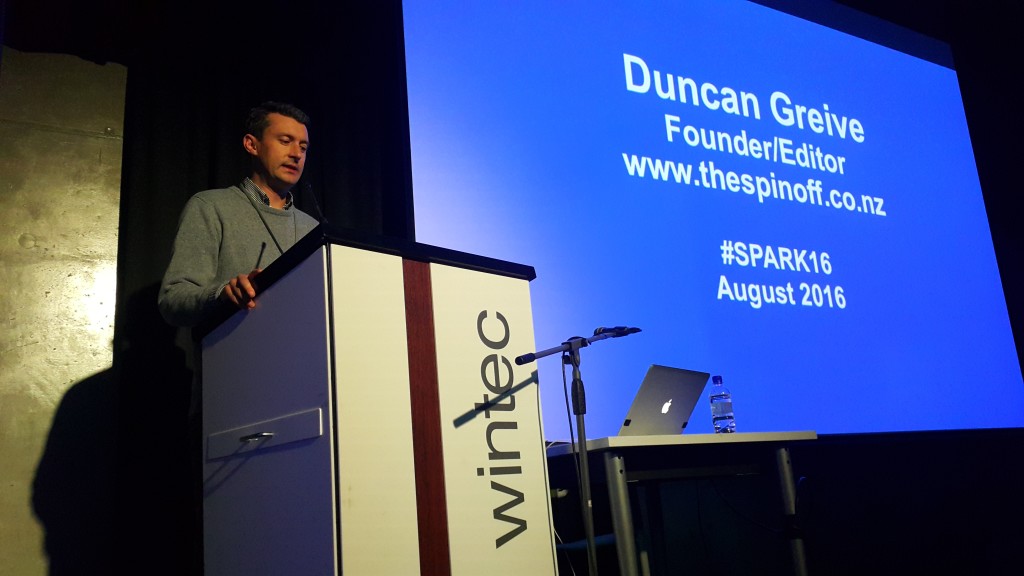Death of journalism to blame for rise of Trump and ISIS
The editor of The Spinoff has blamed the rise of both ISIS and Donald Trump on the death of journalism, and thinks the whole industry needs to move away from getting its money through advertising.
Blame Trump and ISIS on the death of good journalism, an editor of a top magazine website says.
Duncan Greive, editor of the Spinoff, said both ISIS and Donald Trump were a result of bad ideas going unchecked and unchallenged.
Greive was in Hamilton on Tuesday to talk to an audience of around 100 people at Spark, Wintec’s festival of Media Arts, about the future of journalism.
He said the industry has seen more change over the past 10 years than ever before.
And talking about those years is something he is uniquely qualified to do, because they’re the only years he’s known as a journalist.
“When I started things were great,” Greive said.
He started his career in journalism as a writer at the music magazine Real Groovy around 10 years ago.
“I came in at the very end of the period where the money was good [and] the prospects were good.”
He related the story of a promotions company who flew him around the world while he was writing for Real Groove, and didn’t expect a single written article from him for the expense.
That’s a situation he said would be unheard of only three years later.
“That was the speed at which the money went from a torrent to a trickle.”

But the future can open up new options for newspapers, something he said he’s experiencing as editor of The Spinoff.
“I’m optimistic because I see good things every day.”
Greive credits the website’s model of seeking sponsorship rather than advertising as creating better online journalism.
“We have no direct relationship between clicks, users, and revenues.”
Companies sponsor sections of the website for brand placement, regardless of traffic.
“If we have a great month for traffic, what our income is doesn’t change,” he said.
“[It] makes writers more responsible [and] much more interested in [producing] original, well-thought through, rigorously conceived-of pieces.”
He contrasted the Spinoff’s approach with websites like Stuff, Daily Mail, and the New Zealand Herald – which he said have great pieces of journalism on their sites but buried under lesser pieces of ‘clickbait’.
Greive said the future of journalism might lie with philanthropic and other organisations sponsoring high quality journalism.
He sees a version of that in Amazon founder Jeff Bezos’ purchase of the Washington Post.
Bezos invested money into the paper with the aim of funding high quality journalism, and no desire for profitability through advertising – at least in the short-term. Greive credits his act with having helped raise the Post’s readership above that of the New York Times.
But Greive said journalists, and the society that benefits from them, shouldn’t rely on the Washington Post model being replicated.
“If a benevolent tech plutocrat comes along, fantastic, but if they don’t, we need to have a Plan B.”




